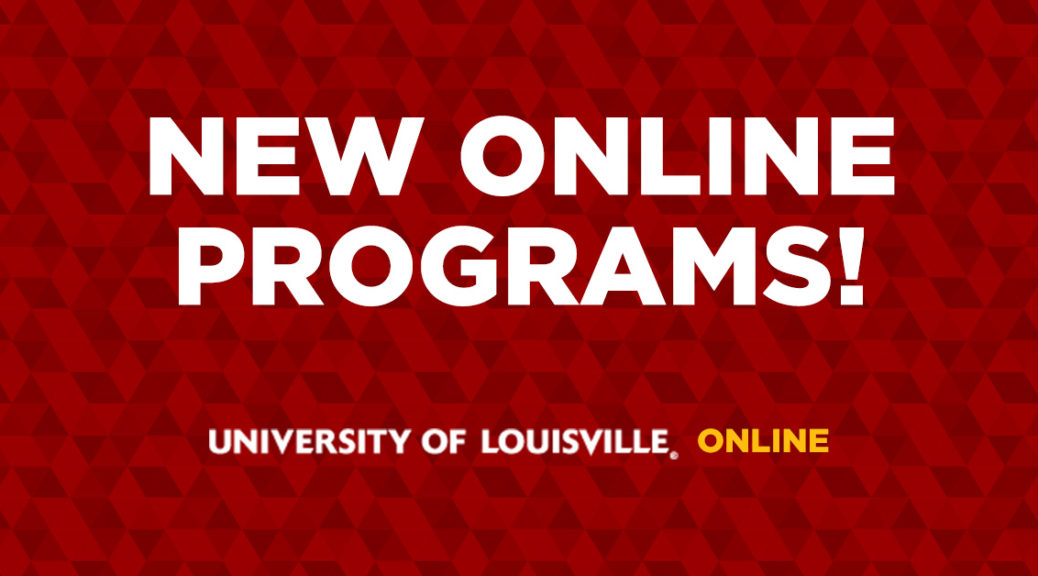
Master your degree in Industrial Engineering with 3 specialized tracks
The University of Louisville’s J.B. Speed School of Engineering offers a master’s degree program in Industrial Engineering with the option to choose from 3 focus areas: Data Analytics & Operations Research, Logistics & Supply Chain, and Human Factors. The MS in Industrial Engineering is a 30-credit hour (10 courses) program that requires 2 core courses (6 credit hours) and 8 courses in an area of focus or across multiple areas for degree completion. The program is taught 100% online by the same professors who teach on campus, affording our students the flexibility to earn their degree, on their schedule, by professors who are experts in the field of industrial engineering. The program is arranged in a unique 8-week course format, allowing the student the flexibility they need to earn their master’s degree while continuing to work and take care of their family.
Many students are able to complete the program and earn their master’s degree in as little as 1.5-2 years. Students entering the program have the option to choose from 3 specialized areas or to customize their coursework by selecting courses from across all the available options. The information below will break down the 3 focus areas and highlight the courses students can take:
Data Analytics & Operations Research Track
IE 515 Operations Research Methods
Formulation and solution of basic models in operations research. Topics to be covered include applications of linear, integer, and nonlinear programming; transportation and assignment problems, and network flows models.
IE 541 Simulation
The use of discrete event simulation to analyze systems. Topics include Monte Carlo techniques, sampling from and identifying stochastic distributions, estimating performance measures from simulation outputs, validation methods, and SIMIO simulation language.
IE 561 Decision Support System in Excel
This course teaches the fundamentals of computer programming using Excel’s macro language, Visual Basic for Applications (VBA), as the language of instruction. The course starts by teaching students to simplify and extend code generated by Excels macro recorder and then builds on that base toward developing applications that analyze information and enhance decision making. This course also provides an introduction to the concepts and methods of Decision Science, which involves the application of mathematical modeling and analysis to management problems. It also provides a foundation for modeling with VBA in Excel.
Logistics & Supply Chain Track
IE 515 Operations Research MethodsFormulation and solution of basic models in operations research. Topics to be covered include applications of linear, integer, and nonlinear programming; transportation and assignment problems, and network flows models.
IE 621 Facility Planning
Design and layout of industrial facilities, facility location, space requirements, flow charts, relationship diagrams, material handling, quantitative layout techniques, production line balancing, and computer programs for layout planning.
IE 625 Production and Inventory ControlTopics include the context of inventory management and production planning decisions, economic order quantities, heuristics and models for probabilistic and time-varying demand patterns, coordinated replenishment systems, and aggregate planning.
Human Factors Track
IE 580 Introduction to Human Factors Engineering and Ergonomics
The main goal of this course is to introduce students to the study of human cognitive and physical abilities and limitations, and the application of that knowledge to engineering design. This course will demonstrate how the application of human factors and ergonomics principles can improve the design of systems involving the interaction of humans with tools, technology, and the work environment.
IE 581 Advanced Topics in Human Factors Engineering
The main goal of this course is to learn and apply advanced methods in human factors engineering, as well as newer models, theories, and frameworks related to the field.
IE 585 Usability Engineering
This course exposes students to the constructs of usability, usefulness, user-centered design, and user experience (UX) and their relation to engineering design. The course covers an interactive evaluation-centered user experience (UX) lifecycle as a template intended to be instantiated in many different ways to match the constraints of a particular development project. The UX lifecycle, sketching, conceptual design, and formative UX evaluation.
For students who choose the general study path, the 8 courses may consist of 1-2 courses in each of the focus areas listed above in addition to other electives. Regardless of which area of study you choose, students will work with the MSIE Program Director to develop a Plan of Study (PoS) upon admission, which may be revised as the student progresses throughout the program.
If you are ready to take the next step in earning your master’s degree in Industrial Engineering, complete your application today. UofL offers 6 convenient start terms throughout the academic year. Click here to learn more.





